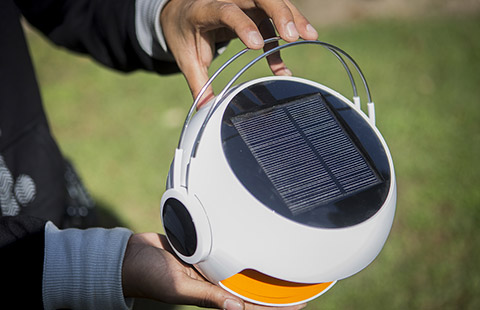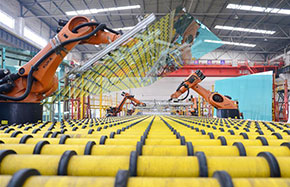Solar products heat up dispute
The EU tends to resolve its sovereign debt crisis by resorting to trade protectionism on the pretext that its trading partners are employing unfair practices, because it knows that the domestic reforms it has planned will be painful enough for the people to lose trust in the member states' governments.
Perhaps launching retaliatory trade investigations is the best way China can hit back at the EU. But China's response to the EU's anti-dumping tariffs should not necessarily be through anti-dumping and anti-subsidy investigations to restrict EU exports to China. Since the EU economy is trapped in the debt crisis, and depends a lot on Chinese investments and exports to China, the government, for example, could curb these investments or cancel some trade orders. Or, it could take counter-action against France, Italy, Lithuania and Portugal, which supported the EC's decision to impose punitive tariffs on Chinese solar panels.
But retaliatory measures alone cannot help China's solar industry weather the imminent storm. The government also needs to make more efforts in some other areas.
One of the major tasks of the government should be to take measures to expand the domestic market. More demand for solar products at home will offset the impact of the anti-dumping and anti-subsidy tariffs on Chinese companies.
China has the capability and resources to achieve its goal of installing facilities to generate an additional 10 GW of solar power and reach its target of 22-25 GW during the 12th Five-Year Plan period (2011-15). And since the demand for Chinese solar cells has increased because of a decline in prices, China should go ahead with its solar power plan.
Also, China needs to explore markets beyond the US and the EU and cash in on the increase in demand for solar products in the emerging economies. And it should devise a sound "going-out" strategy to finance and build solar power stations overseas to promote Chinese solar products. Some companies have already shown how this can be done profitably.
China's solar industry has succeeded because it depends on low costs and high efficiency. That's why it has thrived even amid falling fossil fuel prices. In contrast, dropping fossil fuel prices have hurt the prospects of US and EU solar panel companies because their costs are high and efficiency low. So even if the EU makes the punitive tariffs permanent, its solar products' companies will not be able to compete with their Chinese counterparts.
The author is a researcher at the Chinese Academy of International Trade and Economic Cooperation, affiliated to the Ministry of Commerce.
- China, EU 'goodwill' voiced in solar row
- The solar-panel ball is in the EU's court
- Construction of solar house starts at Peking University
- Jiangxi promotes solar panel installation for residents' homes
- Chinese solar panel makers tap into Africa
- Netherlands opposes EU duties on Chinese solar panels: FM

























